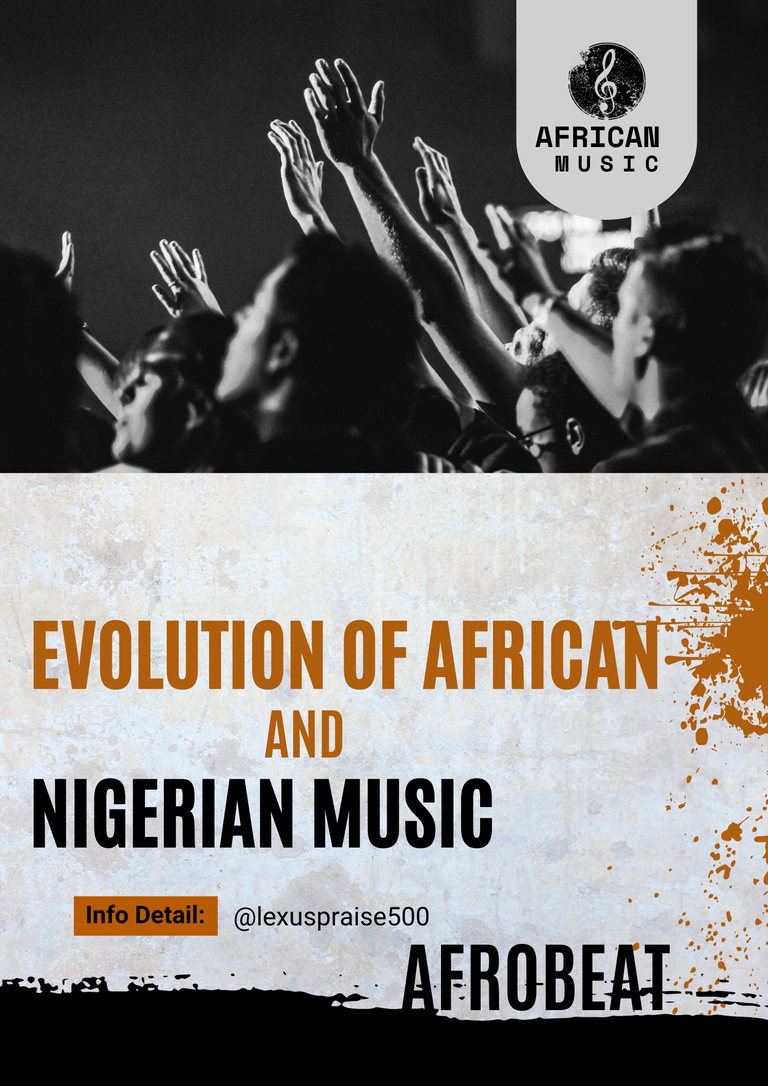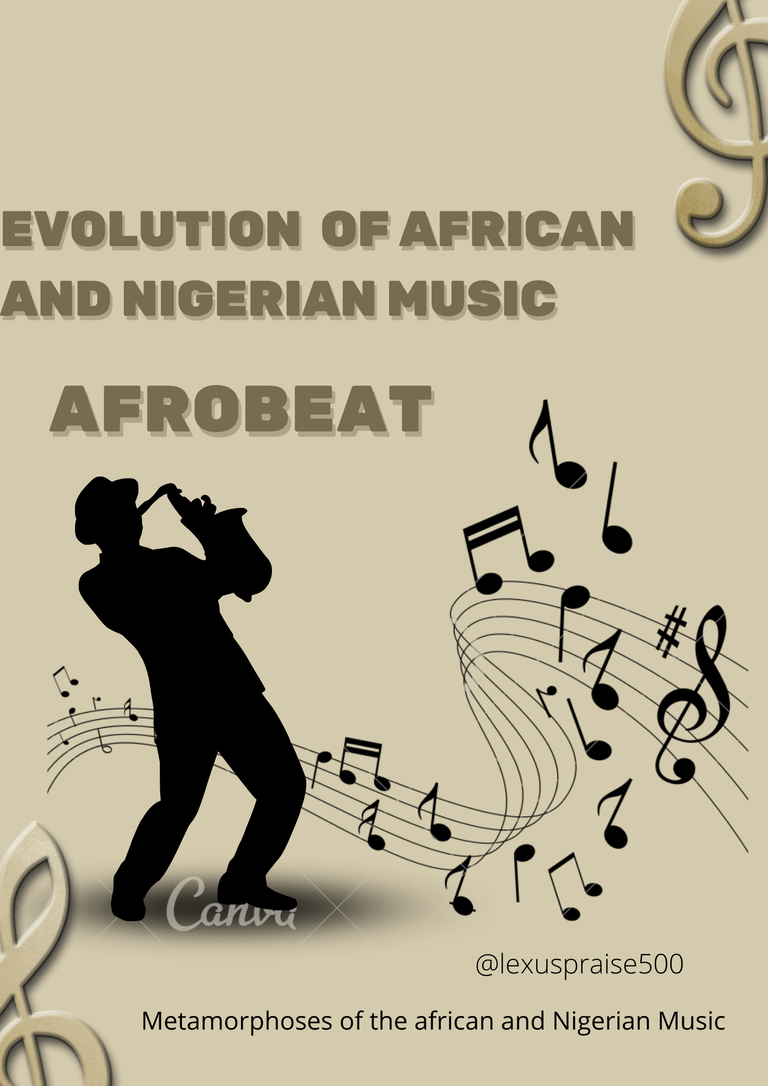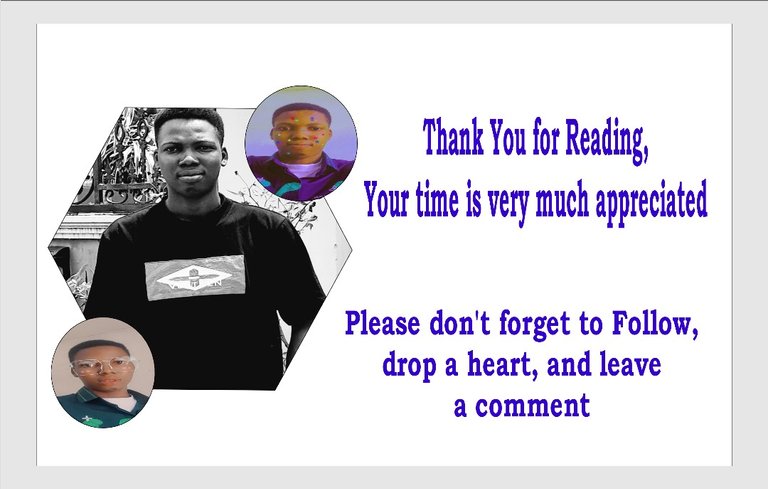Evolution of African and Nigeria Music (afrobeat)

source
African music, in specification Nigeria music, has experienced momentous and noteworthy transformation over series of decades, African (Nigerian) music has advanced from traditional and religious songs to distinguishable and modernised genres which symbolises the country’s rich, dynamics, energetic and spirited culture.
Let’s take look at some succinct synopsis of the chronicle and evolution of African (Nigerian) music and some of its significant and influential artists.
Before the onset of European colonization, African (Nigerian) music was basically functional, staged to characterise ceremonies, work activities or rituals. Nigerian has 371 ethnic groups, with each ethnic group having its own musical instruments, songs, styles and events.
The major ethnics group in Nigeria are the Hausa, Yoruba, Igbos and the Urhobo, the Urhobo’s might not be regarded as a major ethnic, but of course I will always use to mention my tribe as one among the major ethnics group in Nigeria. A few of the traditional music includes the Rara, We-re, Apala, Aurrebbe, Ogene and Amapiano etc.Afrobeat is a genre that conjoined Jazz, Highlife, Juju, Funk and traditional African (Nigerian) music.

source
Afrobeat was induced by a Nigerian artist Fela Kuiti in the early 90s which became a puissant and prominent medium of defiance and protest against military fascism and corruptions in Nigeria.
Highlife is a combination of local rhythms, brass band music and jazz which started in the 20th century in Ghana and later disseminate to Nigeria in the 1920s. Bobby Benson, Victor Olaiya Rex Lawson and Tunde King were among the first pioneers of highlife in Nigeria.
Juju as a genre unfolded from the Yoruba percussion music in the year 1920 which portrays the use of vocal harmonies, talking drums, keyboards and guitars. In the post-independence era, Juju music transformed into a symbol of social and national identity and peculiarity.
African (Nigerian) music widely known as afrobeat has transform to cover every aspect of the African culture including Educational and Political demeanor.
Some Nigeria most influential artist are Fela Kuti, Femi Kuti Dele Sosimi and Tony Allen, other afrobeat biggest stars include Wizkid, Davido, Burna Boy, P-Square (Rude Boy & Mr. P), Tiwa Savage, Yemi Alade, D'banj, Olamide, Mr. Eazi, Falz, Simi, Tekno, Runtown, Rema and Fireboy. Speaking about artist, Wizkid, Davido, Falz, Runtown and Tekno are my favourite artist among the Nigerian Music.
African (Nigerian) Music has created and are still creating many stars and upcoming stars in the Music industry which has contributed greatly to the advancement, development and heterogeneity of African and the Musical world.
African (Nigerian) Music has indeed reflected the chronicle, evolution and uniqueness of African and Nigeria.

An enlightening piece, thank you for sharing. I re-learnt and learnt sth new.
Thank you